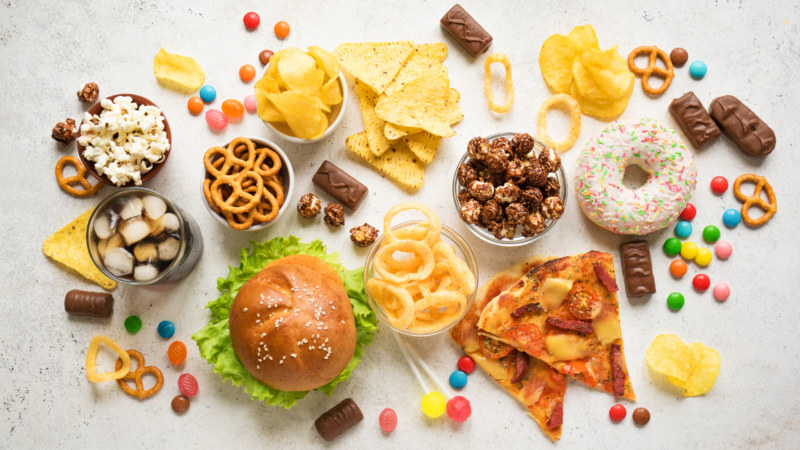
We always hear how bad processed food is for our health, but what exactly is it, and how does it affect our health? While most foods are processed to some degree, not all processed foods are bad for the body. Those considered unhealthy are chemically processed foods, also called ultra-processed foods, high in sugar, artificial ingredients, refined carbohydrates, and trans fats. Unfortunately, ultra-processed foods tend to taste good and are also often inexpensive. Because of this, they are a major contributor to obesity and various illnesses around the world.
Mechanical vs. Chemical Processing
Over the past decades, ultra-processed food intake has dramatically increased worldwide. According to a National Health and Nutrition Examination Survey (NHANES) 2007–2012, almost 60% of calories consumed in 2007–2012 came from ultra-processed foods.
Not all food processing is equally harmful to our health; there is a difference between mechanical processing and chemical processing:
- Mechanical Processing — This refers to heating vegetables, grinding beef, or pasteurizing foods, which does not necessarily make foods less healthy. If the processing does not add chemicals or ingredients, it doesn’t tend to lessen the health value of the food.
- Chemically Processed — Foods which were chemically processed often only contain refined ingredients and artificial substances, with little nutritional value. They tend to have added chemical flavoring agents, colors, and sweeteners.
Research and Findings
According to a large study involving more than 100,000 adults, a 10% increase in the proportion of ultra-processed foods in the diet was associated with a significant increase of more than 10% in overall and breast cancer risks. It also found increased risks of cardiovascular disease, coronary heart disease, and cerebrovascular disorders.
Another large study found that eating more than four servings of processed food daily was linked with an increased risk of all-cause mortality. For each additional serving, the all-cause mortality risk increased by 18%. In short: eating too much ultra-processed food can cut your life short.
Some examples of ultra-processed foods include:
- frozen or ready-made meals
- baked goods, including cakes, pastries, and pizza
- processed cheese
- breakfast cereals
- packaged bread
- ice cream and candy
- chips and crackers
- instant noodles and soups
- reconstituted meats (nuggets, sausages, fish fingers, etc.)
- sodas and other sweetened and artificial drinks
Conclusion

While consuming ultra-processed foods has become part of practically everyone’s daily diet worldwide, eating large amounts of it increases numerous health risks. Because they contain ingredients that could be harmful if consumed in excess, such as saturated fats, added sugar, and salt, and less dietary fiber and vitamins, they can lead to weight gain and several diseases. To reclaim your health, therefore, you must rebalance your diet and try to replace ultra-processed foods with whole foods, including vegetables, fruits, grains, lean meats, nuts, seeds, and legumes.
Sources:
- https://www.sciencedaily.com/releases/2019/05/190529221040.htm
- https://www.ncbi.nlm.nih.gov/pmc/articles/PMC5855172
- https://www.hsph.harvard.edu/nutritionsource/processed-foods
- https://www.health.harvard.edu/blog/what-are-ultra-processed-foods-and-are-they-bad-for-our-health-2020010918605
- https://www.bmj.com/content/360/bmj.k322